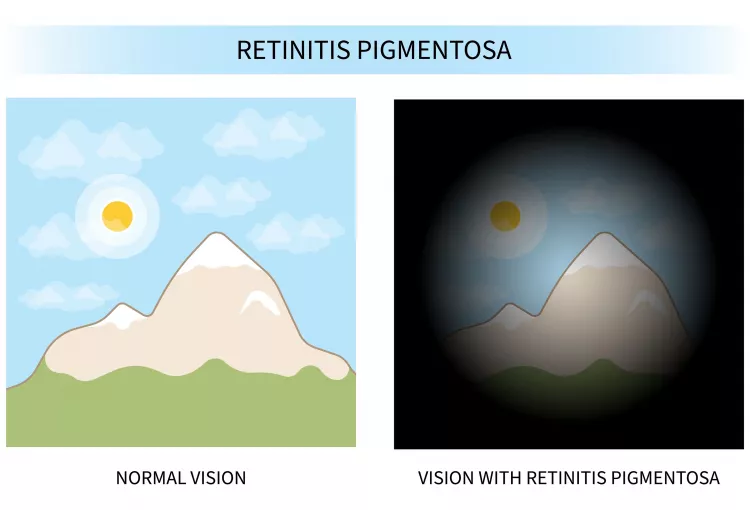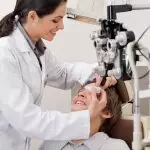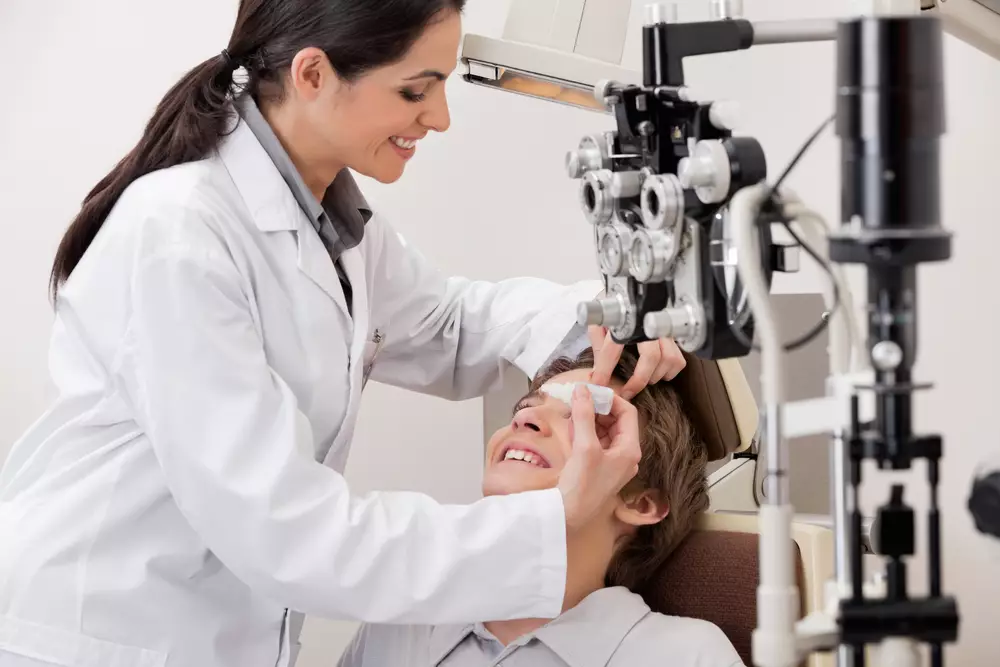A New Clinical Research Opportunity for People with Retinitis Pigmentosa
Join Our Community of Doctors, Researchers, and Patients Dedicated to Finding New Treatments for Retinitis Pigmentosa
Retinitis Pigmentosa (RP) is an inherited retinal disease that causes the gradual loss of photoreceptors, which are responsible for low-light vision. We are inviting individuals with RP to register in our secure database to be connected with upcoming clinical trials to test potential new treatments.
Registering is completely voluntary and has no cost at all.

You may join this registry if:
You are 21 years old or older
You have been diagnosed with retinitis pigmentosa by an eye care professional
You are willing to attend in-person study visits
Other criteria may apply.
About Retinitis Pigmentosa
Retinitis Pigmentosa (RP) is a group of rare eye diseases that affect the retina (the light-sensitive layer of tissue in the back of the eye). RP makes cells in the retina break down slowly over time, causing vision loss.
RP is a genetic disease that people are born with. Symptoms usually start in childhood, and most people eventually lose most of their sight. While there is currently no cure for RP, vision aids and rehabilitation can help patients make the most of their vision. In some cases, medication or surgery can address compounding issues like cataracts.
Scientists are continually researching novel approaches to treating RP, but they cannot do it alone. By joining this registry, you can help them develop new therapies.

Did You Know?
All prescription drugs that are taken today were once studied in clinical trials. Scientists cannot study ground-breaking therapies without the help of volunteers. New medications cannot be prescribed unless they are found to be safe and effective in clinical trials.

A large number of experimental drugs never get a chance to be researched because scientists are unable to find enough volunteers for the clinical trial.

Any qualified, experienced medical doctor can become a trial doctor, even your family physician or eye doctor.

Trial sites can be any hospital, medical clinic, or doctor’s office where trial-related assessments take place.



